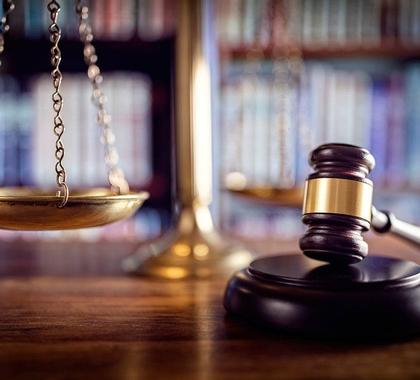Speech First, which represented three anonymous students in a lawsuit challenging the University of Michigan’s (UM) sweeping campus speech codes, reached a favorable settlement agreement in the case.
The settlement followed a federal appeals court ruling that the First Amendment gave the students grounds to sue. The settlement marks a serious setback to the concept of Bias Response Teams, which have been formed at UM and other colleges to enforce speech codes.
Speech First is a Washington, D.C.-based association of students, parents, faculty, alumni, and concerned citizens who have “had enough of the toxic censorship culture on campuses and want to fight back,” the group’s website states. The organization supports students’ right to free speech through advocacy, education, and litigation. In addition to its action against the University of Michigan, Speech First has sued the University of Texas at Austin.
Speech codes have become common at universities across the United States (and elsewhere) and are increasingly characterized by critics as instruments to suppress free speech, particularly when the offending opinions run counter to the prevailing left-wing orthodoxy on campus.
Bias Response Teams investigate complaints by students against other students for expressing the “wrong” opinions and have become a ubiquitous presence on many campuses.
University Settles
In the wake of an appellate court’s decision the organization had standing to sue, the University of Michigan and Speech First entered into negotiations which culminated in the October 28 settlement. The university agreed to abolish its Bias Response Team, replacing it with a “Campus Climate Support” program that does not have enforcement power.
The University of Michigan dropped its previous definitions of “harassment” and “bullying” and agreed never to return to those definitions, which Speech First had argued were unconstitutional.
The settlement reserves the right of Speech First to sue the school if the Campus Climate Support program is used to chill student speech in the future.
“Speech First is thrilled the University of Michigan has finally agreed to respect the First Amendment rights of its students,” Speech First President Nicole Neily said in a statement.
“Speech First’s victory paves the way for students who may have been too fearful or intimidated to express their opinions to finally embrace their free speech rights and engage in true academic discourse,” Neely wrote. “While our battle is far from over, we are pleased that the administration will no longer maintain policies that have both the purpose and the effect of chilling student speech.”
‘Profound Chilling Effect’ on Speech
In its complaint, Speech First stated University of Michigan officials had created “an elaborate investigatory and disciplinary apparatus to suppress and punish any speech whom students may deem offensive.”
“Under this regime, the most sensitive student on campus effectively dictates the terms under which others may speak,” the complaint said. “The university’s expansive and amorphous prohibitions on ‘bullying,’ ‘harassment’ and ‘bias-related misconduct’ are having—and will continue to have—a profound chilling effect on protected expression.”
The Sixth Circuit Court of Appeals ruled in September that Speech First had standing to challenge the university’s Bias Response Team because the members of the nonprofit “face an objective chill based on the functions of the Response Team.”
“Speech First recognizes that the Response Team lacks any form of disciplinary power and that bias incidents are not directly punishable under the Statement, but maintains that the response team acts by way of implicit threat of punishment and intimidation to quell speech,” the appeals court ruled. The court further questioned the legitimacy of the Bias Response Team by stating, “Both the referral power and the invitation to meet with students objectively chill speech.”
Trump’s Executive Order
The University of Michigan’s speech codes have come under critical scrutiny from the U.S. Department of Justice, which sided with Speech First in April 2018. The Trump administration’s DOJ argued the university is failing to live up to the principle of free speech.
President Donald Trump signed an executive order (EO) crafted to hold colleges and universities receiving federal research grants accountable for protecting free speech on March 21, 2019. Among other things, the EO directs 12 federal grantmaking agencies to coordinate with the federal Office of Management and Budget (OMB) to certify universities receiving federal research funds comply with existing federal law and regulations involving free academic inquiry.
‘Victory for Student Groups’
Speech First’s win is a way to keep students out of harm’s way, says Greg Greubal, an attorney with the Foundation for Individual Rights in Education (FIRE).
“This is a victory for student groups all across the country who want to challenge similar policies before they are actually harmed by them,” Greubal said.
Bias Response Teams are reminiscent of George Orwell’s novel 1984, says Jane Shaw Stroup, chair of the North Carolina-based James G. Martin Center for Academic Renewal.
“The federal court’s decision and the agreement between the University of Michigan and Speech First are salutary developments,” Stroup said. “What I don’t know is whether these Orwellian Bias Response Teams will be disbanded on other campuses as well. I hope so.”
Bonner R. Cohen, Ph.D. ([email protected]) is a senior fellow at the National Center for Public Policy Research.





